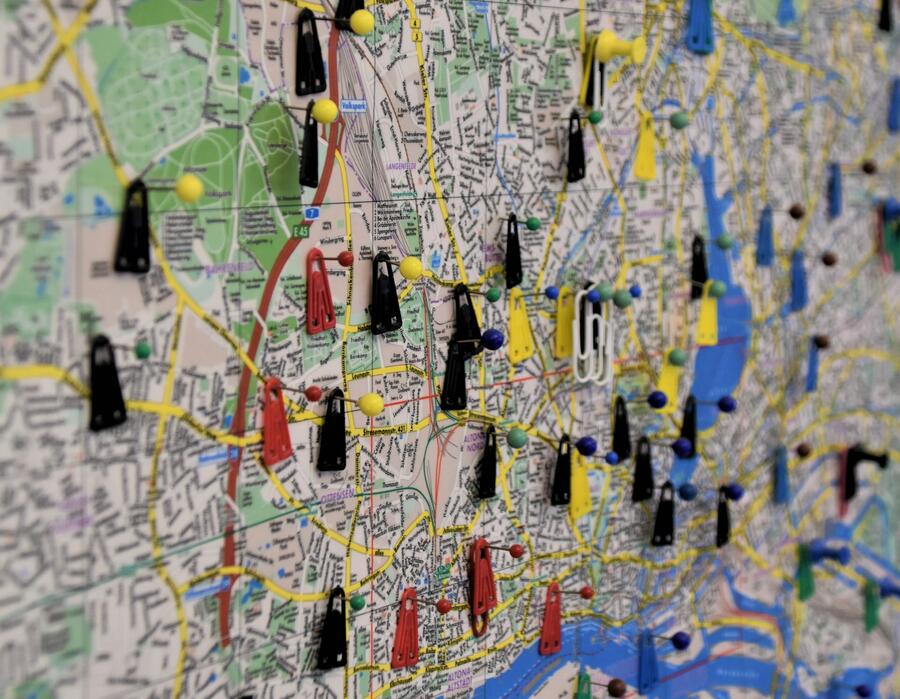
Using an Improved Database of City-level Mitigation Actions to Drive Improved Practice
Taking effective action on climate change is more urgent than ever, but cities across the world are still hamstrung by limitations on their ability to efficiently look to and learn from other cities. Although tens of thousands of cities across the globe are each implementing numerous actions to tackle this critical problem, extremely little information about these activities is available in easy-to-access formats leading most practitioners to preferentially seek information from their immediate neighbours rather than pursue any kind of systematic investigations. Furthermore, due to the lack of inter-compatibility in how activities are described and measured, it is extremely challenging to perform effective analysis and other forms of investigation on what cities are doing. Although there is some effort made to consolidate city-level activities (examples including the Data Portal for Cities and the CDP Open Data Portal) these repositories do not currently provide cities with effective ways to interrogate and understand the data to inform decision-making. We have observed that this lack of direct connection to practitioners leads to a lowering of perceived value and to inadequate or infrequent submission of further data.
This lack of sustained and robust data input from cities is an extremely critical issue with the research community as well. Poor documentation and standardization in city activity classification provides serious barriers to both learning from, and providing guidance, to municipal practitioners.
In response to this Ironbark, in conjunction with Innovate4Cities, developed a database which has been further expanded into a new tool called CityCAD. Both tools have been developed using a new approach to documenting city-level activities, with a specific focus on functionality and engagement for municipal practitioners and associated staff. This approach has been specifically developed based on the ways in which cities design their activities with the intention to connect directly into decision-making pathways. Through doing this, we have been able to identify numerous ways of providing ongoing value to practitioners as well as providing many benefits to researchers and other stakeholders.
This seminar will review the structure and function of CityCAD focusing on how it addresses current barriers to knowledge transfer. We will also explore some of the ancillary benefits it provides, and design principles for interfacing to city practitioners to facilitate improved practice in stakeholders with a range of technical and analytical capabilities.

This event has been organised with the financial support of the European Union’s Partnership Instrument. The opinions expressed are the sole responsibility of the speakers and do not necessarily reflect the views of the European Union.
Matt is co-lead of the Innovations Unit - Climate Program for Ironbark Sustainability.
Matt has been at the forefront of innovation for carbon emissions mitigation at the local government level for over ten years. As Head of Research for the Moreland Energy Foundation, and among other innovative solutions he developed the fundamentals of their Zero Carbon Evolution program, a pioneering initiative that sought to dramatically ramp up community-scale programs. Since his time at Ironbark Sustainability he developed the data platform that created Snapshot Community Emissions Profile (www.snapshotclimate.com.au), which has become the primary tool for municipalities across Australia for preparing their emissions inventories and launching their programs into climate change mitigation. He developed the Science-Derived Target method that connects Australian municipalities to the National Determined Contribution (NDC), a method now recognized by the international organisation the Global Covenant of Mayors for Climate and Energy. He also has pioneered methods for determining the impacts of initiatives by local government in reducing emissions in their municipalities, centred on his Evidence-Based Action Planning framework. Most recently, he has developed the CityCAD database and has been working with a range of stakeholders to systematically empower improved practice.
Matt regularly presents to national audiences of city practitioners and other experts on best practice and innovative new methods. He has also sat on numerous working groups and expert panels assessing innovation and standards in the industry.
